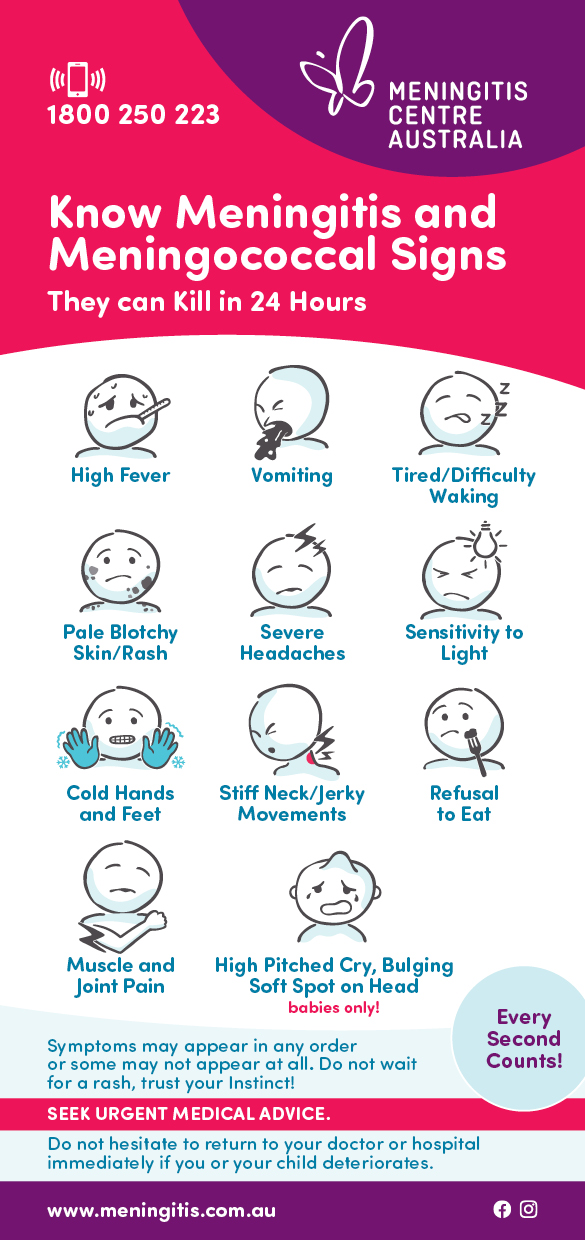Health officials have warned Far North Queenslanders to be alert to the symptoms of meningococcal, after a patient fell ill with the potentially deadly bacterial disease.
A single case of invasive meningococcal disease has been confirmed in the Cairns region, after it was detected in a patient in late March.
There has been a total three cases of the serious infection in the region since the start of the year, compared to the yearly average of one case.
Meningococcal disease is uncommon, and invades the body from the throat or nose.
It usually appears as meningitis or sepsis.
The infection can develop very quickly and can be fatal in 5-10 per cent of cases, according to the Department of Health.
Dr Steven Donohue from Tropical Public Health Services said his unit regularly followed up each new case and may provide antibiotic treatment and/or vaccinations to close household contacts, in line with national guidelines.
“In this instance, the Tropical Public Health Service has undertaken contact tracing,” he said.
“There is a very low risk of further cases, and the patient in question has since recovered.”
He said meningococcal did not spread easily, and cases were uncommon in the Far North.
“Meningococcal can cause serious illness marked by a rapid deterioration,” he said.
“So the community should be vigilant and alert to the signs and symptoms which include rash, vomiting, fever, headache, confusion, stiff neck and joint pain.
“If concerned, people should seek immediate medical attention as early treatment can be lifesaving.”
He said the best way to prevent meningococcal disease was via immunisation.
“All children are offered a combined meningococcus type A, C, W, and Y vaccine at 12 months and in school year 10,” he said.
“Another vaccine against meningococcus type B is available privately.”
Meningococcal bacteria cannot live outside a human body and they cannot be picked up from surfaces, water supplies, swimming pools, buildings, food, drinks, pets or other animals.
Spread of the bacteria is associated with regular close, prolonged and intimate contact.
The bacteria are passed between people in the secretions of fluid from the back of the nose and throat.
This generally requires close and prolonged contact with a person carrying the bacteria, who is usually completely well.
Meningococcal bacteria are not easily spread by sharing drinks, food or cigarettes.
SOURCE: Cairns Post

